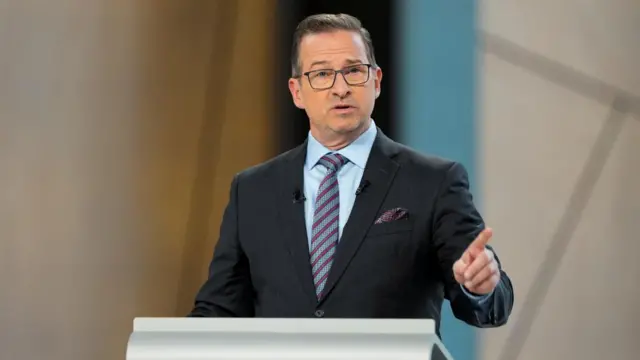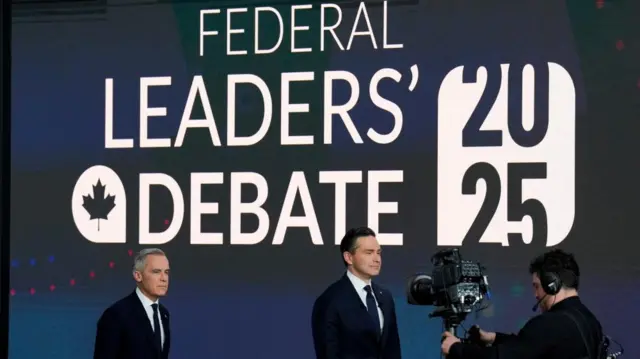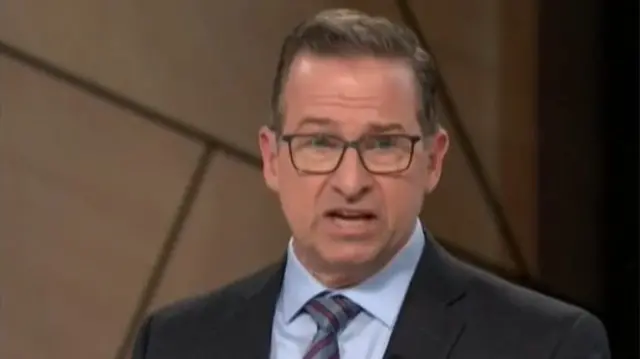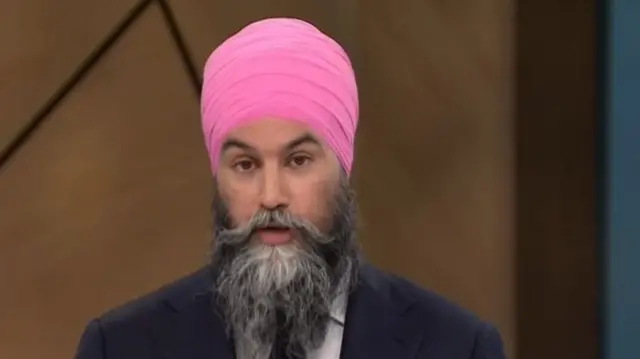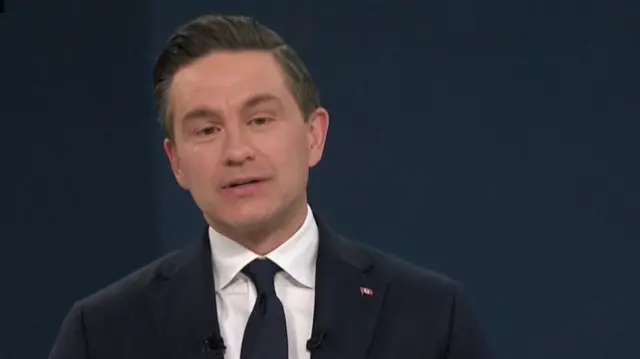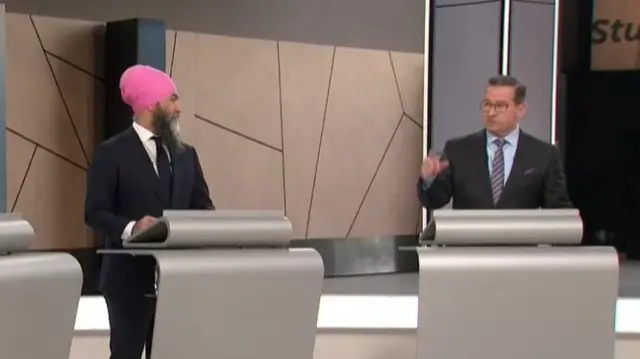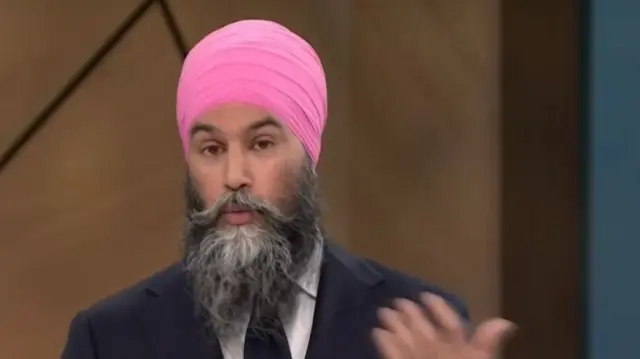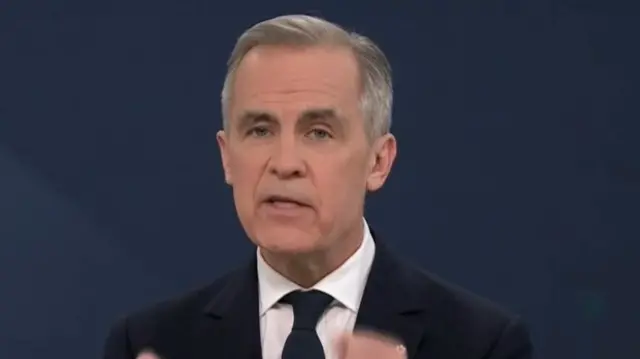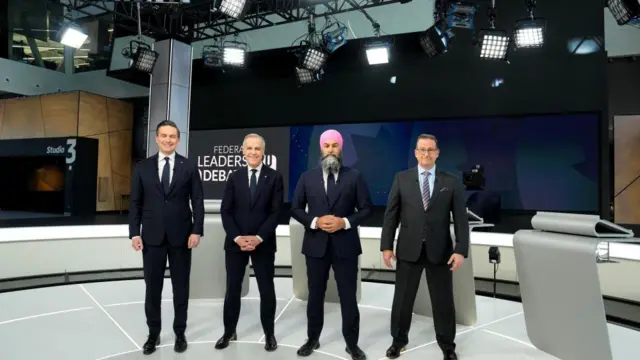Singh champions his healthcare cost positionpublished at 00:39 BST 18 April
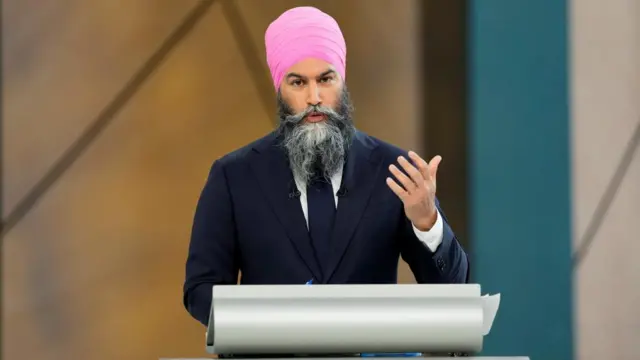 Image source, Reuters
Image source, ReutersSingh is asked about rising costs in Canada, and says he is the only person who fought for pharmacare, dental care and child care - all measures that Poilievre and Blanchet voted against.
"You can't entrust all the power to Mr Carney," the NDP leader says, pivoting to attack the Conservatives and the Bloc.
Poilievre continues attacking Mark Carney over the cost of living, saying the Liberals raised taxes on nine out of 10 Canadians. He says the Conservatives would cut income tax by 15% and would be "rewarding hard work again".
